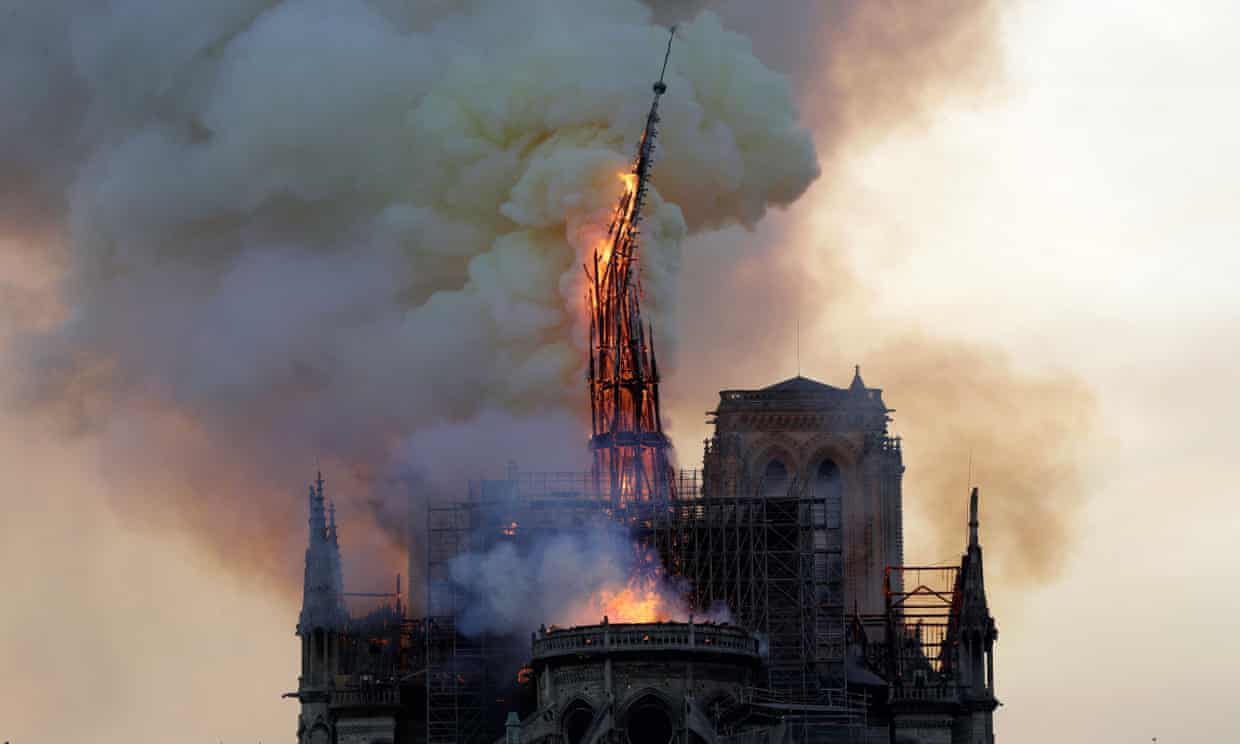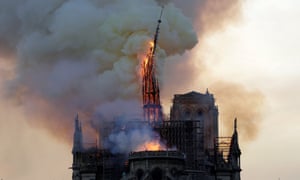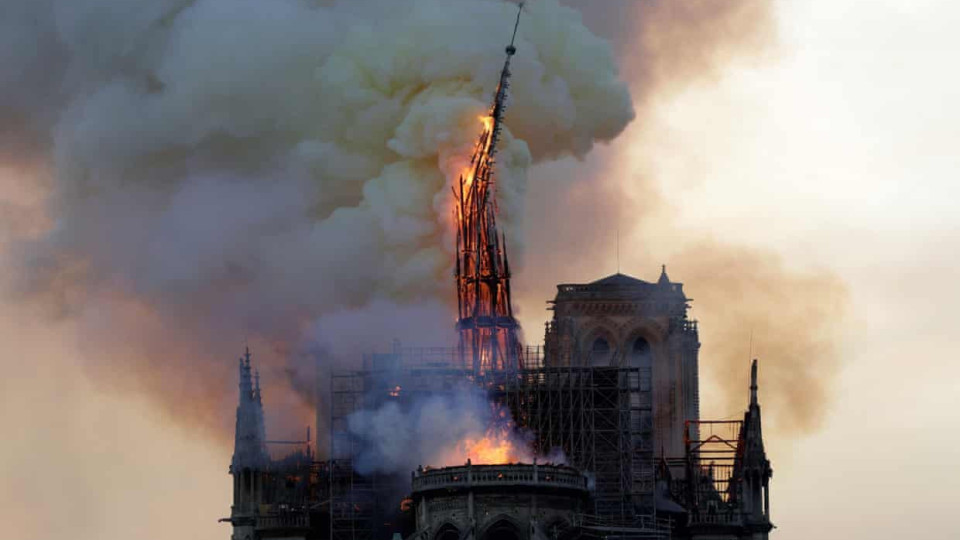
The sight of the cathedral in flames is a heartbreaking reminder to Europeans to care for what they have in common

It’s hard to describe the sorrow of seeing Notre Dame in flames. It felt like watching a precious family jewel being destroyed before our eyes. But what was even more painful was to realise the significance of it all: we were watching something burn that we thought would never burn.
To all Parisians and Europeans, Notre Dame is simply a wonder. There it stands, the subject of pride and admiration. Each time we passed by, even if we’d seen it a thousand times, we’d always at least glance at it, almost as if we had to. And yet we took that wonder for granted. Not that it became invisible or that we stopped noticing it, but because it simply stood there as it should: like the pyramids, Greek theatres or the temples of ancient Rome. It was a wonder of the world, an eternal monument that existed well before us and would long outlive us too.
The sorrow becomes even deeper when you realise that the catastrophe of Notre Dame represents so perfectly the condition of contemporary Europeans: people condemned to live among wonders, taking them for granted, ignorant of the fact that they may disappear– then suddenly finding themselves in a situation they’d never envisioned.
After the fire started, a few verses by the 19th-century French poet Gérard de Nerval began circulating on Twitter: “Notre Dame est bien vieille: on la verra peut-être/Enterrer cependant Paris qu’elle a vu naître.” (Notre Dame is very old: we may see her/ Bury, however, Paris, which she saw born.) The poem ends with the vision of tourists, a thousand years from now, contemplating the ruins of the cathedral. Notre Dame could be destroyed only by time, many, many years after we are long gone. We could not imagine being witnesses to such a catastrophe. Yet now we are.
The question that lies before us now is reconstruction. We have to rebuild. Emmanuel Macron has already vowed to repair Notre Dame, announcing the launch of a national donation campaign. But with that question comes another, deeper, one: how do you reconstruct something everyone thought existed separate from time itself?
Even those who have lived in Paris for many years felt humbled each time they passed by the facade, not only because of the massive stained glass windows, or the many carvings shadowing the square outside, but because, despite the hundreds of tourists always gathered at the entrance, there was a special, intimate silence about the place. Many have a very personal memory linked to Notre Dame, whether it is a cold evening silently staring at the cathedral to take some time back from the trials and tribulations of daily life, or the muted tones of a psalm heard from a chapel inside.
The cathedral has always been a part of our daily lives, a presence, a legacy that we share whatever our beliefs. For Europeans, the burning of Notre Dame comes with a wider warning: don’t take the wonders you enjoy for granted. Care for them more, because they may not be with you for ever. Europeans too often blindly navigate through a landscape of wonder, which is allowed to become a banal part of daily life. If they continue not to care for it, they may soon realise that it has already gone up in flames. To rebuild this wonder, to rescue it from being taken for granted once more, Europeans will need more than money and will: they will need a profound, thorough consideration of what they have in common, and what it means to be a European.
The Guardian











Leave a comment